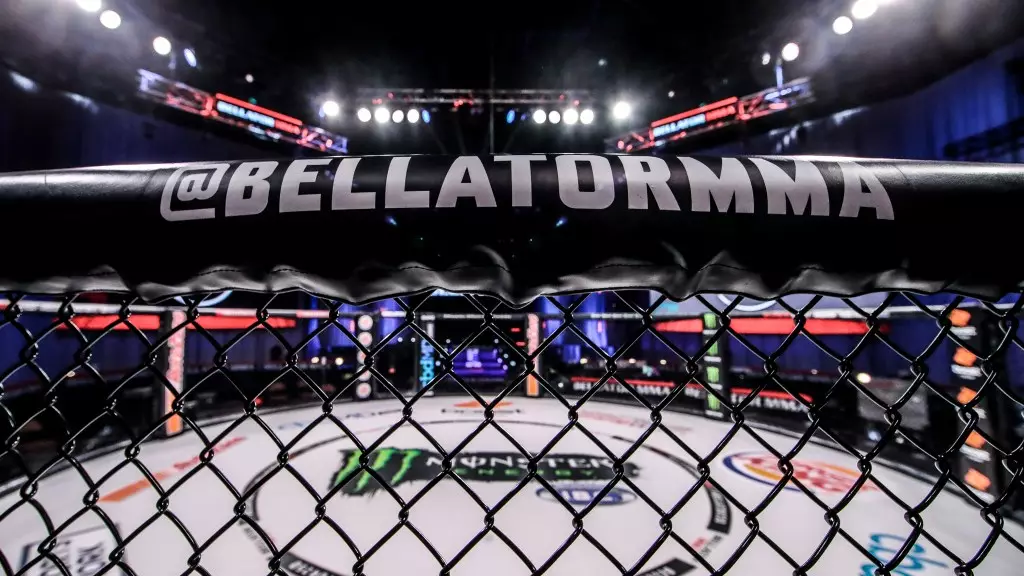In March 2020, the world was thrust into a whirlwind of chaos as the COVID-19 pandemic intensified. The sports industry, often a bastion of entertainment and adrenaline, found itself paralyzed by an unprecedented health crisis. One such casualty was Bellator 241, a highly anticipated mixed martial arts event that was to take place at the Mohegan Sun Arena. Bellator’s President, Scott Coker, faced a situation that many leaders across various industries found themselves in—navigating the uncertain waters of public health while considering the livelihoods of athletes, staff, and fans.
It started with a decision to limit the number of attendees. First, fans were barred from entering the arena. Soon after, media access was denied. Ultimately, just hours before the show was set to begin, Coker made the difficult call to postpone the event entirely. The weight of the decision rippled through the organization, yet Coker believed it was the right move—one guided by a responsibility far greater than merely putting on fights.
A Leader’s Dilemma
Coker’s conversations with fighters, staff, and production teams were crucial in reaching this decision. Rather than reflecting external pressures, the choice emanated from an introspective consideration of the health risks and emotional toll on those involved in the event. His intuitive approach underscored that the heart of Bellator was not simply the fights but the community it cultivated. “Just call it,” he expressed, highlighting the necessity of prioritizing safety over spectacle during a time when many were uncertain about the virus’s potential impact.
Reflecting on the rapidly evolving situation, Coker admitted that, only days prior, they were riding high on the wave of a successful press conference in New York—a clear indicator of the positive momentum the promotion had. However, the stark reality of the virus’s expansion cast a long shadow, forcing the organization to pivot from high hopes to cautionary measures.
Financial Responsibility
Despite the postponement, Coker made it clear that financial considerations were fundamental to his decision-making. He asserted that all fighters, officials, and production staff would be compensated, emphasizing the promotion’s commitment to ensuring that no one left empty-handed during such turbulent times. Coker’s acknowledgment of the wider implications of the pandemic reflected a leadership style rooted in ethics and camaraderie—the kind of leadership that reassures rather than alienates.
“Everybody gets to go home and be with their families now,” he stated, underscoring the human element in an industry often seen through the lens of competition and aggression. It’s a refreshing take; rather than focusing solely on the business aspect, Coker adeptly navigated the emotional landscape that can often be overlooked in the realm of professional sports.
A Fluid Future
In the wake of the postponement, Coker was left contemplating an unpredictable future. The pandemic not only halted Bellator’s schedule but also raised the specter of further disruptions across the sporting world. He candidly remarked on the impossibility of planning in a scenario defined by fluidity. “You can’t make plans when there is uncertainty like this,” he noted, thus presenting a realistic view of the logistical nightmare faced by promoters and athletes alike.
The hope for a vaccine and improved testing measures hung in the air as a beacon of possibility. Yet even with these advancements, Coker was acutely aware that the timeline for a return to normalcy was uncertain. The sport’s ecology is delicate, and Coker’s ability to adapt would be critical as he monitored developments closely.
Rethinking the Norms of Competition
In conversations surrounding athlete safety, Coker expressed an optimistic but cautious viewpoint. Acknowledging the demographic of fighters—often younger and fitter—might be less vulnerable to the virus, he nevertheless underscored the necessity of treating all health concerns with the utmost seriousness. His musings reflected a broader dialogue within the sports community on balancing safety with the innate desire to compete.
As Bellator’s future hung in a precarious balance, Coker encouraged his staff to embrace this hiatus as an opportunity to reconnect with their families. Detaching from the rigors of an intense travel schedule could foster a sense of mental well-being and resilience that would ultimately benefit the organization when the time arrived to resume competition.
Ultimately, Coker’s leadership during this challenging episode serves as a poignant reminder that, within the realm of entertainment, empathy and safety should always take precedence over the spectacle of competition.

